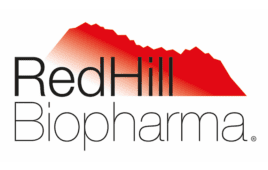Orchard Therapeutics, a leading commercial-stage biotech company dedicated to transforming the lives of patients with rare diseases through innovative gene therapies, today announced that the European Medicines Agency (EMA) has granted Priority Medicines (PRIME) designation to OTL-300, an investigational autologous ex vivo lentiviral gene therapy for the treatment of transfusion-dependent beta-thalassemia (TDBT), the most severe form of beta-thalassemia.
The PRIME program aims to increase regulatory support for the development of therapeutics targeting areas of high unmet need. PRIME designation provides enhanced interaction with the EMA to both optimize development and accelerate evaluations of applications. To be accepted for PRIME, an investigational therapy must demonstrate potential therapeutic advantage over available treatment options or benefit patients with no current treatments.
PRIME designation for OTL-300 is based on data from preclinical and early clinical programs evaluating the autologous ex vivo gene therapy in TDBT patients, including data collected from nine patients in an ongoing proof-of-concept clinical trial of 10 patients currently being conducted by the San Raffaele-Telethon Institute for Gene Therapy. As of September 2018, OTL-300 has been evaluated in a total of nine patients. Of the seven patients with at least 12 months of follow-up as of April 2018, significant reductions in transfusion frequency and volume requirements were observed in five patients.
Additionally, three of the four pediatric patients were transfusion-free since approximately one month post-treatment, and reductions in transfusion volume requirements were observed in two out of three adult patients, with one patient transfusion-free over a period of nine months. All patients are alive, and safety data from the nine patients treated in this clinical trial indicate OTL-300 was generally well-tolerated.
“We are encouraged by the early clinical trial data in TDBT patients, which was started in 2015 in hopes of extending the hematopoietic stem cell gene therapy approach that has been so successful in such conditions as adenosine deaminase severe combined immunodeficiency (ADA-SCID), Wiskott–Aldrich syndrome (WAS) and Metachromatic Leukodystrophy (MLD) to other diseases with unmet medical needs such as TDBT,” said Giuliana Ferrari, the research scientist who leads the thalassemia gene therapy project at the San Raffaele- Telethon Institute for Gene Therapy. “Hematopoietic stem cell gene therapy could offer a promising alternative to the current standards of care for adults and children living with TDBT.”
TDBT is a rare inherited blood disorder caused by one of over 200 mutations in the HBB gene (or beta-globin gene). TDBT is characterized by failure to grow and gain weight, infection, and life-threatening anemia, which occur within the first two years of life. The only curative approach is allogeneic hematopoietic stem cell transplantation which carries significant transplant-related morbidity and mortality. Most patients with TDBT undergo chronic blood transfusions due to the severity of their symptoms and, as a result, often develop side effects such as iron overload, which requires additional iron chelation therapy, leading to further serious side effects and reduced quality of life.
“We are pleased that the EMA has granted PRIME designation for OTL-300 based on encouraging preliminary results from an ongoing clinical trial that utilizes our ex vivo lentiviral gene therapy approach to treat the underlying genetic cause of TDBT, a serious and life-threatening inherited blood disorder,” said Mark Rothera, president and chief executive officer of Orchard. “PRIME designation allows us the opportunity to engage more closely with the EMA and potentially accelerate our ability to provide an innovative new treatment option for patients and families affected by TDBT.”
OTL-300 was acquired by Orchard from GSK in April 2018, and originated from a pioneering collaboration between GSK and the Hospital San Raffaele and the Telethon Foundation, acting through their joint Telethon Institute for Gene Therapy, in Milan, initiated in 2010. This collaboration led to the development of Strimvelis, the world’s first approved autologous ex vivo gene therapy product.
(Source: Orchard Therapeutics)
Filed Under: Orphan Drugs




